Nature Knows and Psionic Success
God provides
Say YES to NOOTROPICS to Boost Brain Function

Say YES to NOOTROPICS to Boost Brain Function Nathan Zassman Jan 18 Nootropics are a classification of dietary supplements designed to improve cognition and memory while facilitating learning. The word was created by Romanian physician Corneliu E. Giurgea by combining the Latin words nous (mind) and trepein (to bend). Completely safe and free of adverse effects, nootropics can increase circulation to the brain, boost neuronal growth, improve memory and focus, prevent cognitive impairment, and may even help us to be more creative. Some of the extensively-researched nootropic compounds include Magtein, Pycnogenol, PQQ, acetyl L-carnitine, alpha-lipoic acid, lion’s mane, Alpha GPC, lutein, zeaxanthin, vinpocetine, and Bacopa monnieri. Other proven, powerful, cognitive ingredients include omega-3, ginkgo biloba, taurine, phosphatidylserine, creatine, L-theanine, and blueberries. With so many beneficial ingredients to choose from, I’ve elected to detail just a few of the most studied that have been shown to be effective. Nootropic supplements can help generate new mitochondria, boost neuronal growth, support nerve growth factor, and may help prevent or reverse the progression of Alzheimer’s disease by stabilizing amyloid beta 40 protein levels and reducing phospholipid hydroperoxides. Research indicates nootropics can help control blood sugar (high blood sugar levels, insulin resistance, and type 2 diabetes are associated with dementia and the development of Alzheimer’s disease), and inhibit the enzyme acetylcholinesterase (AChE) to help maintain optimum levels of the vital neurotransmitter acetylcholine. More Mitochondria The tiny energy furnaces in our cells, mitochondria are among the most important keys to our health, energy levels, and brain function. Research has proven that you can increase mitochondria by up to 50% with only six weeks of exercise, calorie restriction, and intermittent fasting. I recommend the books The Complete Guide to Fasting by Jason Fung and Fast Diet by Dr. Michael Mosley to learn more about this approach. […]
Estrogen made by neurons important to making memories

This is Dr. Darrell Brann and graduate student Yujiao Lu Estrogen in the brain is important to keep neurons communicating and memories being made, scientists report. Neurons in both males and females make estrogen and the scientists have shown that when they don’t, their brains have significantly less dense spines and synapses — both key communication points for neurons — in the biggest part of their brain, called the forebrain. "We think this shows estrogen has a clear role in synaptic plasticity, how the neurons communicate and in memory," says Dr. Darrell Brann, interim chair of the Department of Neuroscience and Regenerative Medicine at the Medical College of Georgia at Augusta University. Brann and his colleagues found that mice whose neurons don’t make estrogen have impaired spatial reference memory — like a baseball player not knowing where home plate is and what it means to get there — as well as recognition memory and contextual fear memory — so they have trouble remembering what’s hazardous — they report in the Journal of Neuroscience . Restoring estrogen levels to the brain area rescues these impaired functions, Brann and his colleagues report. It was known that aromatase, the enzyme that converts testosterone to estrogen, was made in the brain’s hippocampus and cerebral cortex in a variety of species that includes humans, Brann says, and that they all can have memory deficits when aromatase is blocked. Patients who take an aromatase inhibitor for estrogen-dependent breast cancer also have reported memory problems. So for these studies in mice, they knocked aromatase out of the forebrain, which includes the hippocampus, which has a role in making long-term memories and spatial memory, and the cerebral cortex, which is important to memory, attention, awareness and thought. They depleted aromatase only in the excitatory neurons — called […]
Estrogen made by neurons important to making memories

Dr. Darrell Brann and graduate student Yujiao Lu Credit: Phil Jones, Senior Photographer, Augusta University Estrogen in the brain is important to keep neurons communicating and memories being made, scientists report. Neurons in both males and females make estrogen and the scientists have shown that when they don’t, their brains have significantly less dense spines and synapses—both key communication points for neurons —in the biggest part of their brain , called the forebrain. "We think this shows estrogen has a clear role in synaptic plasticity, how the neurons communicate and in memory," says Dr. Darrell Brann, interim chair of the Department of Neuroscience and Regenerative Medicine at the Medical College of Georgia at Augusta University. Brann and his colleagues found that mice whose neurons don’t make estrogen have impaired spatial reference memory—like a baseball player not knowing where home plate is and what it means to get there—as well as recognition memory and contextual fear memory—so they have trouble remembering what’s hazardous—they report in the Journal of Neuroscience . Restoring estrogen levels to the brain area rescues these impaired functions, Brann and his colleagues report. It was known that aromatase, the enzyme that converts testosterone to estrogen, was made in the brain’s hippocampus and cerebral cortex in a variety of species that includes humans, Brann says, and that they all can have memory deficits when aromatase is blocked. Patients who take an aromatase inhibitor for estrogen-dependent breast cancer also have reported memory problems. So for these studies in mice, they knocked aromatase out of the forebrain, which includes the hippocampus, which has a role in making long-term memories and spatial memory, and the cerebral cortex, which is important to memory, attention, awareness and thought. They depleted aromatase only in the excitatory neurons—called excitatory because they help make some action […]
NYT, WashPost journalists pushed utterly fabricated fake science statistics that claimed sexism in job interviews

( Natural News ) The fake news media is once again using a bogus story to push left-wing dogma on an unsuspecting public. This time, multiple media outlets have been spreading news of a fake study designed to showcase sexist hiring practices in the tech industry. Anyone with a brain should find it hard to believe that the overwhelmingly leftist tech industry is guilty of the extreme sexism they’ve been accused of. But it seems the intolerant Left just can’t get enough of eating its own. Indeed, the mainstream media was quick to condemn the entire tech industry for sexism. Over Twitter, posts about raging sexism in tech got thousands upon thousands of likes and shares — and all of this outrage was based on nothing but pure lies. Will The New York Times and the Washington Post be given the “scarlet letter” for their continued abuse of power and their failure to engage in honest reporting? Probably not. Fact-checkers like NewsGuard don’t actually serve to preserve truth — they exist to advance the left-wing narrative, and to help usher in an age of totalitarianism. Sexism study is a sham As Breitbart reports , multiple mainstream media outlets reported on an “experiment” allegedly conducted by a tech recruiting firm named “Speak with a Geek.” This study supposedly found that the tech industry was overwhelmingly biased against women. An article by The New York Times declared, “In a 2016 experiment conducted by the tech recruiting firm Speak With a Geek, 5,000 résumés with identical information were submitted to firms. When identifying details were removed from the résumés, 54 percent of the women received interview offers; when gendered names and other biographical information were [sic] given, only 5 percent of them did.” Support our mission and enhance your own self-reliance : […]
Formula for INSANITY: Believe in hate crime hoaxes, take prescription medications, eat GMOs, drink tap water, get your flu shot, watch CNN, and read the NYT and WashPo

( Natural News ) Isn’t it quite ironic that there is not one single photo or video clip of President Donald J. Trump being a racist, when 50 million Americans have been brainwashed by the media to believe that he is one? In fact, before he ran for POTUS, there was never any mention of it ever, because he’s quite the opposite – a fair, just, and considerate human being. It’s all been a media hoax that’s been scripted, staged, and perpetuated with propaganda, just like the Jussie Smollett lynching hoax . Can you see it now? There is a formula for insanity in America, and it’s mixed carefully and methodically, then “prescribed” to the masses. Nothing else would explain why tens of millions of Americans would literally murder a Trump fan in cold blood if they knew they could get away with it, right now. Any sane, responsible person who’s not doped up and dosed up on chemicals and propaganda would not have so much rage built up inside them over a couple years of political rip-rap. There were plenty of Americans who figured out that Obama was a traitor who sought the destruction of the Republic, yet still, we weren’t all going around mauling Obama fans to vent our frustrations, or staging hate crimes for attention and to fuel dissonance and division in our country. The Left is wrought with triggered freaks acting like neanderthals with their smart phones. Oh, the irony of it all. The formula for insanity boils down to a combination of toxic food, toxic medicine, and toxic news It all boils down to a combination of toxic food, toxic medicine, and toxic news, that’s all repeatedly “consumed” for months, and even years on end. To date, not one single Trump supporter has outright […]
What you eat affects how you think: The connection between your gut and your brain
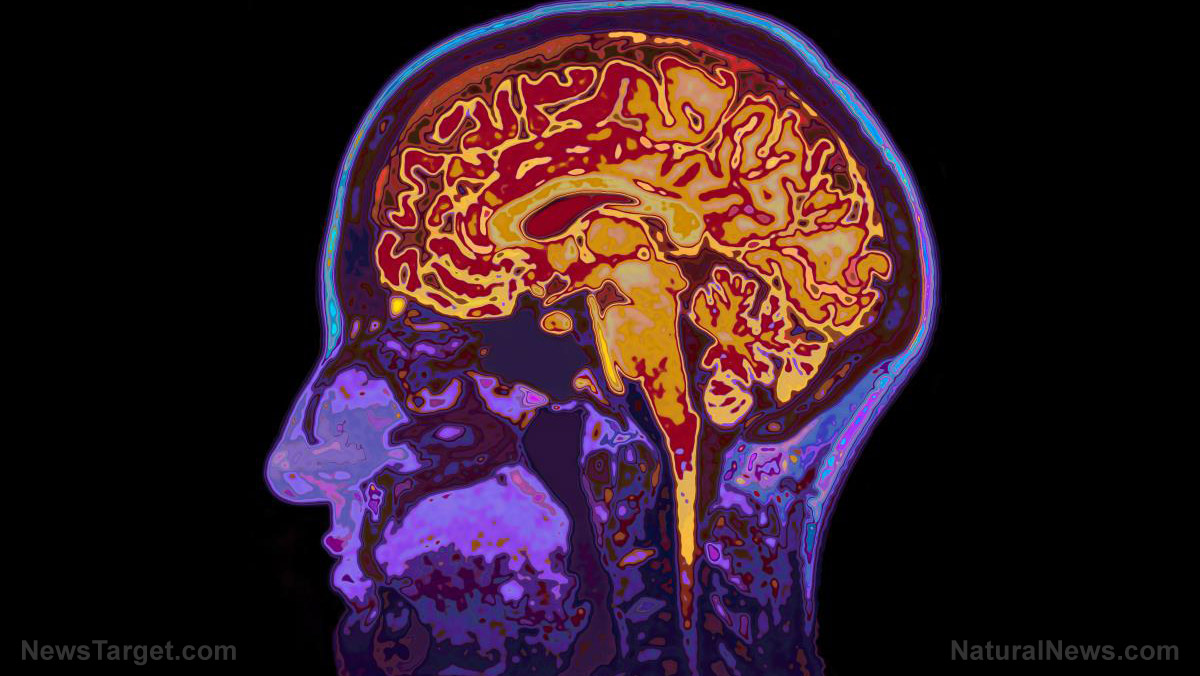
People often underestimate the effects that their diet has on the brain. However, there is a growing body of evidence that highlights the clear connection between the gut and the brain . This is often dubbed as the gut-brain axis. Recent studies on this matter focused on the effects of a high-salt diet on brain health. For a long time, people have associated excessive amounts of salt with high blood pressure . This consequently increases the risk of various health problems, including heart disease and stroke . However, some data have shown that high salt intake can be linked to stroke, regardless of whether the person has high blood pressure or a high risk of heart disease. This observation suggests that there is a missing link between salt intake and brain health. The gut-brain axis has become the center of many studies over the years. Researchers have found that the disruption of the gut-brain axis increases the risk of diseases like Parkinson’s and irritable bowel syndrome. There are also studies highlighting the effects of high salt intake on the gut and consequently, the brain. These showed that too much salt results in immune changes in the gut that make the brain more vulnerable to attacks by the body’s own immune system. Based on this, it is possible to say that the gut communicates with the brain through immune signaling. A study published in Nature showed another connection between the gut and brain that’s mediated by the immune system. According to their findings, immune signals sent by the gut can damage blood vessels in the brain. This leads to deteriorated brain health and cognitive impairment. Mother Nature’s micronutrient secret : Organic Broccoli Sprout Capsules now available, delivering 280mg of high-density nutrition, including the extraordinary "sulforaphane" and "glucosinolate" nutrients found only […]
What you eat affects how you think: The connection between your gut and your brain
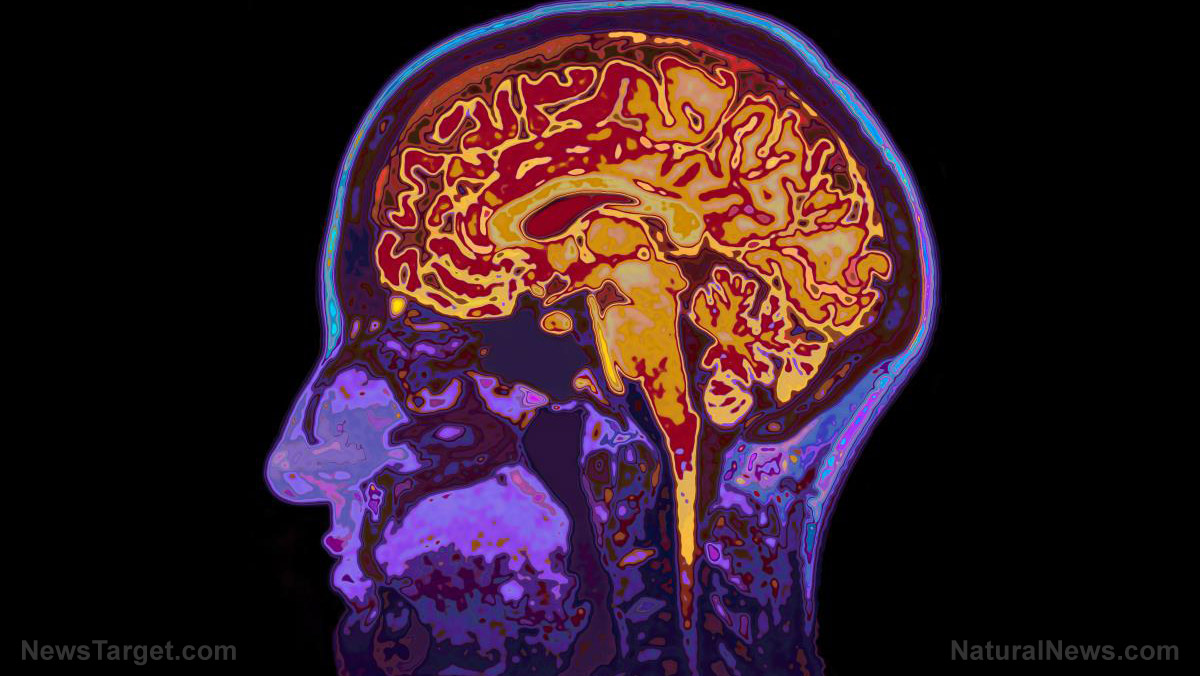
( Natural News ) People often underestimate the effects that their diet has on the brain. However, there is a growing body of evidence that highlights the clear connection between the gut and the brain . This is often dubbed as the gut-brain axis. Recent studies on this matter focused on the effects of a high-salt diet on brain health. For a long time, people have associated excessive amounts of salt with high blood pressure . This consequently increases the risk of various health problems, including heart disease and stroke . However, some data have shown that high salt intake can be linked to stroke, regardless of whether the person has high blood pressure or a high risk of heart disease. This observation suggests that there is a missing link between salt intake and brain health. The gut-brain axis has become the center of many studies over the years. Researchers have found that the disruption of the gut-brain axis increases the risk of diseases like Parkinson’s and irritable bowel syndrome. There are also studies highlighting the effects of high salt intake on the gut and consequently, the brain. These showed that too much salt results in immune changes in the gut that make the brain more vulnerable to attacks by the body’s own immune system. Based on this, it is possible to say that the gut communicates with the brain through immune signaling. A study published in Nature showed another connection between the gut and brain that’s mediated by the immune system. According to their findings, immune signals sent by the gut can damage blood vessels in the brain. This leads to deteriorated brain health and cognitive impairment. Mother Nature’s micronutrient secret : Organic Broccoli Sprout Capsules now available, delivering 280mg of high-density nutrition, including the extraordinary "sulforaphane" and […]
Cayenne peppers are medicinal powerhouses that deserve a spot in your emergency medical kit

( Natural News ) Add some spice to your emergency medical kit with cayenne peppers. This small but highly nutritious superfood packs a punch against various health problems. Some examples of its health benefits include the following: Stopping a stuffy nose — Cayenne peppers are effective against nasal congestion due to the common colds, flu, and allergies. It contains capsaicin which breaks up and expels mucus from your sinuses. To enjoy this benefit, just add a teaspoon of cayenne pepper to hot water and drink up. Do this three times a day to dilate blood vessels in your nose and drain your sinuses. Suppressing fungal growth — The CAY-1 compounds in cayenne peppers have potent antifungal effects against 16 different strains of fungi. Moreover, it was shown to induce this effect without harming animal cells. Relieving migraines — Capsaicin in cayenne reduces the amount of substance P, a chemical involved in the delivery of pain signals to the brain. This helps relieve migraine pain. In addition to this, capsaicin reduces platelet aggregation factor (PAF), which causes migraines by interfering with blood circulation in the head. Promoting healthy digestion — Cayenne works as a natural digestive aid. It stimulates the production of digestive enzymes and gastric juices. As a result, the body finds it easier to metabolize food in your system. This superfood also helps with gas and bloating by stimulating the movement of the intestines. Moreover, the capsaicin in cayenne has been shown to protect against stomach ulcers . Preventing dry mouth — Saliva is important for proper digestion and maintaining oral health. Unfortunately, some people don’t produce enough of it, which makes them have a dry mouth. By eating cayenne pepper, you can enhance the production of saliva. Preventing blood clot formation — People with atherosclerosis have a […]
Why turmeric is truly a gold superfood
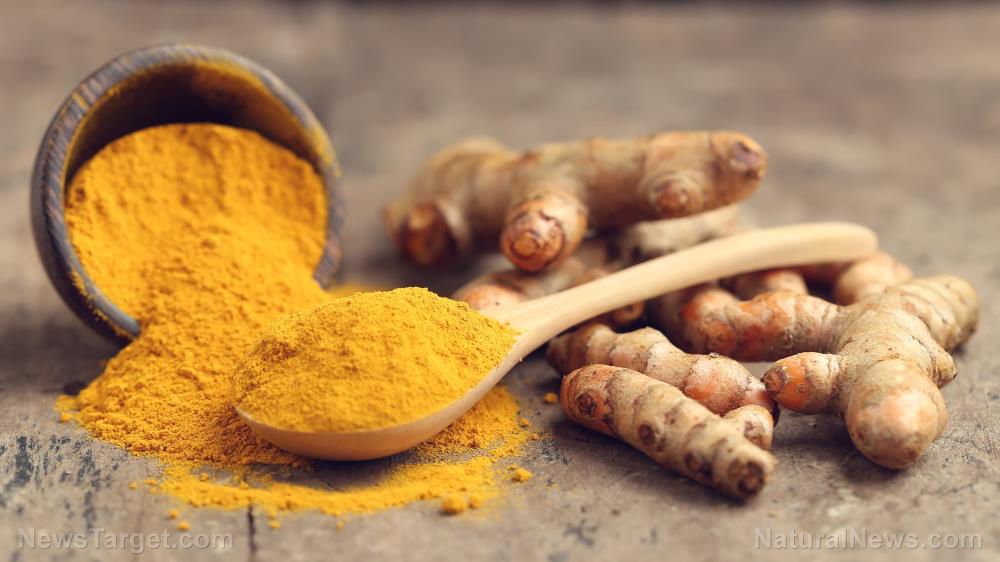
( Natural News ) Turmeric is one of the most famous superfoods in the entire world. This golden spice has a wide range of benefits from supporting brain health to protecting the heart from disease. Recently, scientists from different research institutes in Sao Paulo, Brazil found another use for this superfood. In their study, which was published in the Journal of Medicinal Food, they found that curcumin, the active compound in turmeric, called can treat — and even protect the body from — inflammatory bowel diseases (IBD). IBD is characterized by chronic and recurring inflammation of the gastrointestinal tract. There are two major types of IBD, namely ulcerative colitis and Crohn’s disease. Estimates show that more than 1.5 million Americans suffer from these conditions . The exact cause of IBD remains unclear, but scientists believe that the pathogenesis of this disease involves a combined role of the gut microbiome, barrier function, and the immune system. This debilitating disease has the potential to be life-threatening when left untreated. For most cases of IBD, healthcare professionals recommend taking anti-inflammatory drugs, immune system suppressors, or antibiotics. Unfortunately, these types of medications are associated with adverse side effects . Take the commonly prescribed corticosteroids, for example. This type of anti-inflammatory drug has been shown to cause mood swings, high blood pressure, upset stomach, easy bruising, and blurred vision. Additionally, conventional medications for IBD can be a big financial burden. Mother Nature’s micronutrient secret : Organic Broccoli Sprout Capsules now available, delivering 280mg of high-density nutrition, including the extraordinary "sulforaphane" and "glucosinolate" nutrients found only in cruciferous healing foods. Every lot laboratory tested. See availability here. Previous studies have shown that some plants can be used as natural remedies for IBD. This is because of the presence of bioactive compounds with anti-inflammatory and antioxidant […]
Shocking list of college course names reveals truth of how liberal universities have devolved into lunatic left-wing propaganda indoctrination camps

( Natural News ) The identity politics and victim mentality of the left continues to grow because liberal universities are literally indoctrinating students with self-limiting belief systems on issues of race, gender, identity, and sex. An organization called the Young America’s Foundation conducted an audit of online courses offered to students for the 2018-2019 academic school year. The audit pulled course descriptions from the U.S. News and World Report’s Top 10 Liberal Arts Colleges, including the Southeastern Conference, the Big 10 Conference, the Big East Conference, and the Ivy League. What they found was both shocking and hilarious… read the full report here . Not only do the course descriptions perpetuate a liberal agenda, but they mock conservative values from the start, while shutting out ideological diversity and dissent. The courses are obsessed with topics that advance the ideas of feminism, promote transgenderism, and impart a victim mentality for any race that isn’t white or any gender that isn’t male. The courses alienate masculinity, highlight the teachings of Karl Marx, and talk about the “queering” of education, God, and the Bible. Today’s university course offerings make a mockery of education At Swarthmore College, students can take RELG 032: “Queering God: Feminist and Queer Theology.” The course states, “The God of the Bible and later Jewish and Christian literature is distinctively masculine, definitely male. Or is He?” During the class, students will learn “to stretch the limits of gendering and sexing the divine.” At Wellesley College, students can take a course in “Transnational Feminisms,” described as “a critical engagement of transnational feminism(s) in a global context.” The course description offers a hilarious mouthful: “In this course, we will explore how neoliberal globalization, human rights discourses and an intersecting array of complexes — including those of a humanitarian, non-profit, and prison […]
Want to boost your memory? Simply start cooking

Cooking helps to activate your brain regions associated with a sense of smell, touch, sight and taste. @shutterstock Do you often find it difficult to remember where you kept your car keys or your partner’s birthday? These incidents may initially give you the tag of a ‘forgetful professor’ which you may enjoy, tacitly though. But what if these goof-ups become frequent and start interfering with your functional life? Well, the frequency and magnitude of such events may act as a cue to your dwindling memory. Don’t ignore them. As you age, your memory and other cognitive abilities start to decline . The ability to grasp and retain new information goes downhill. “Here age does not only stand for how old you are according to the day you were born ( chronological age) but also refers to how old do you feel in terms of your health ( biological age ),” says Dr Prahlad Kumar Sethi, Senior Neurology Consultant, Sir Ganga Ram Hospital, Delhi. Your biological age is determined by various factors such as your lifestyle, genetics, the food that you eat, diseases and other conditions. “If you are a 30-year-old who has an extremely unhealthy lifestyle and food habits then the possibility is that your biological age is much more than 30,” adds Dr Sethi. So, your biological age, which is dependent on various lifestyle and genetic factors, is a crucial determinant of your cognitive skills including memory. “A healthy brain lives in a healthy body. Starting from a young age, one must follow a routine of healthy eating, regular exercise, and sleeping at the right time for a sharp mind,” says Dr Sethi. Here is a list of a few simple yet effective activities that you can incorporate in your daily routine to rev up your memory. Start […]
Curcumin Found to Work Wonders in Protecting Brain Health

Curcumin could even increase neuroplasticity, which is the ability of the brain to change and development throughout one’s lifetime. ( Newswire.net — February 22, 2019) Orlando, FL — Nutrients are needed to keep the brain healthy and functioning. One of the nutrients to consider using is curcumin, which can be found in the ancient, medicinal spice called turmeric. Curcumin has been found to work wonders in protecting brain health. Today, there are many factors that contribute to symptoms and diseases affecting the brain. This is why it is imperative to ensure that the brain has all the nutrients it can get to fight threats. Curcumin is one of these nutrients, and it is believed to be the major reason why turmeric offers many healing benefits. Turmeric is a deep yellow orange colored spice that has long been used in traditional Chinese and Ayurvedic medicine. It contains curcumin, which has anti-cytotoxic, antibiotic, antimicrobial, anti-purulent, immunomodulating, anticatabolic, antibacterial, antifungal, anti-inflammatory, neurorestorative, and metal-chelating properties. It also has anticarcinogenic, antiproliferative, antiviral, renoprotective, anticoagulant, antiseptic, antioxidant, anti-amyloidogenic, insulin-sensitizing, androgenic, antifibrotic, and genoprotective agents. According to some experts, this natural remedy could nourish and even protect the brain in multiple ways. It is potent antioxidant that is capable of crossing the blood-brain barrier, an action of which is found to be helpful in protecting brain cells from free radical damage. It has further been found that curcumin could enhance memory and concentration through its ability to increase blood flow to the brain. In a study, the researchers found that intake of curcumin led to improvements in blood flow as well as physical exercise. In a separate study, it was also found that curcumin was able to improve attention span significantly. It even has positive effects in the working memory of healthy seniors within an […]
12 Best Brain Foods That Improve Memory and Boost Brain Power

Nutrition plays a vital role in brain function and staying sharp into the golden years. Personally, my husband is going through medical school, which is like a daily mental marathon. Like any good wife, I am always looking for things that will boost his memory fortitude so he does his best in school. But you don’t have to be a med student to appreciate better brainiac brilliance. If you combine certain foods with good hydration, proper sleep and exercise, you may just rival Einstein and have a great memory in no time. I’m going to reveal the list of foods coming out of the kitchen that can improve your memory and make you smarter. Here are 12 best brain foods that improve memory: 1. Nuts The American Journal of Epidemiology published a study linking higher intakes of vitamin E with the prevention on cognitive decline. [1] Nuts like walnuts and almonds (along with other great foods like avocados) are a great source of vitamin E. Cashews and sunflower seeds also contain an amino acid that reduces stress by boosting serotonin levels. Walnuts even resemble the brain, just in case you forget the correlation, and are a great source of omega 3 fatty acids, which also improve your mental magnitude. 2. Blueberries Shown in studies at Tuffs University to benefit both short-term memory and coordination, blueberries pack quite a punch in a tiny blue package. [2] When compared to other fruits and veggies, blueberries were found to have the highest amount of antioxidants (especially flavonoids), but strawberries, raspberries, and blackberries are also full of brain benefits. 3. Tomatoes Tomatoes are packed full of the antioxidant lycopene, which has shown to help protect against free-radical damage most notably seen in dementia patients. 4. Broccoli While all green veggies are important and […]
Best Energy Pills – What to do When you are Low on Energy?
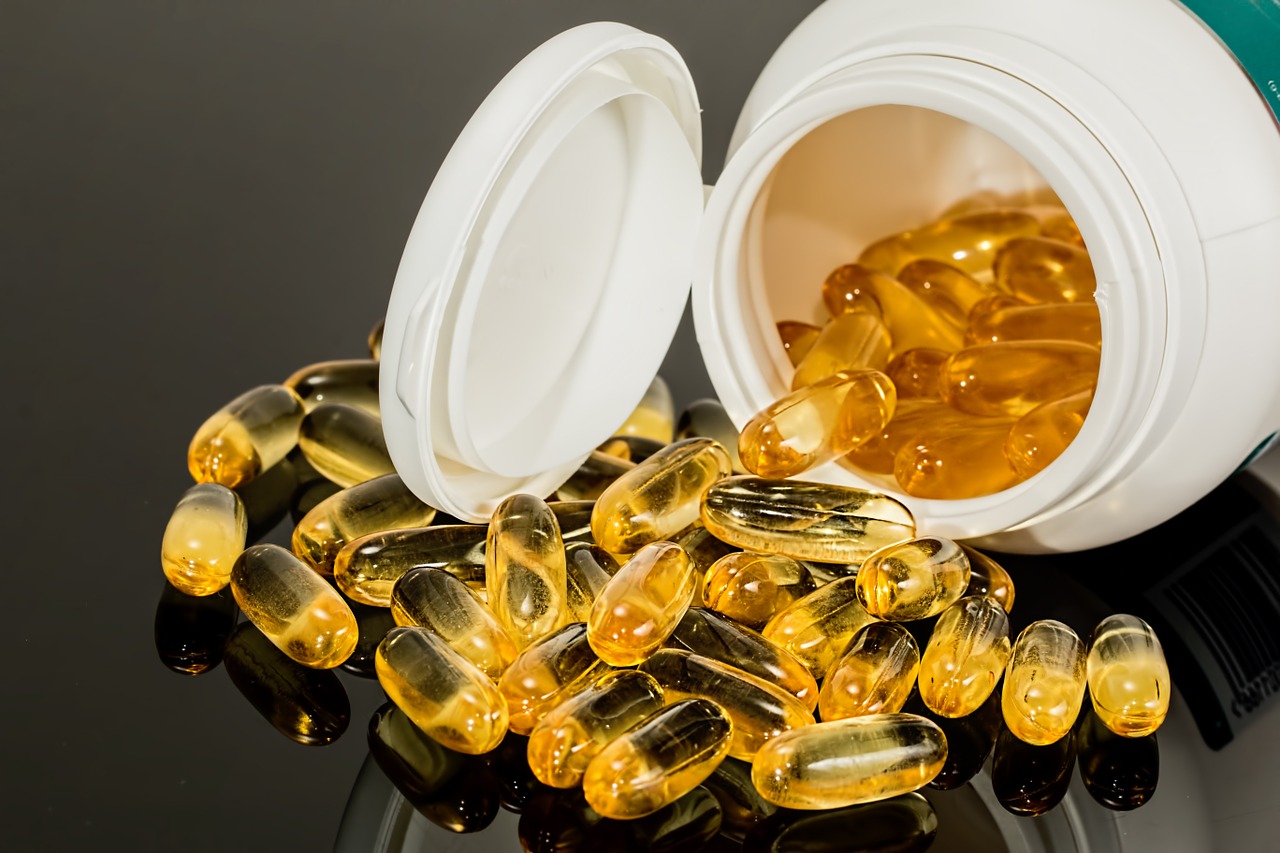
Lack of sleep, lack of physical activity, too many carbs in your diet, and so on. All of these factors can contribute to feeling fatigued. The simple explanation is you lack energy. So, what can you do in these situations? Well, there are two ways you can boost energy. One is to turn to some natural ways for boosting energy, or look for the best energy pills on the market. We will break down both ways. What are natural ways to boost energy? Whether you want more power for your morning workout, you need a lift for the afternoon, or you just need energy to help last throughout the long workday, there is a supplement that can help you. Now, while the word supplement sounds unnatural, the reality is that there are natural ways to boost energy. Here are some. Most of us cannot start the day without a cup of coffee. And there is a simple explanation for that. While you might say you are addicted to caffeine, the reality is that you’ve grown accustomed to have something boost your energy in the morning. Caffeine revs up your metabolism, and will make you feel like you have more not just physical, but also mental energy. If you want to avoid coffee, a herbal tea, or green tea is also a good natural source of caffeine. It is a herb that also contains caffeine. Guarana can be helpful for young adults with mental strain. A word of notice: if you get a lot of caffeine from other sources, avoid guarana. You do not want to overdo it, as too much caffeine can be harmful and cause anxiety and heart rhythm issues. It is a natural supplement that can improve your mood and energy. It is quite an expensive supplement, […]
The Ultra Mind Solution: Automatically Boost Your Brain Power, Improve Your Mood and Optimize Your Memory by Mark Hyman
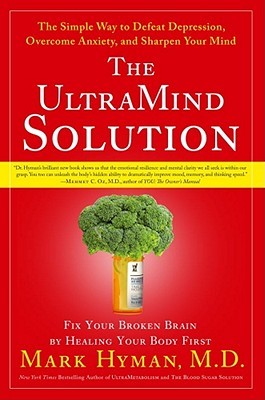
A hidden epidemic races around the globe — we can’t see it or touch it, which makes it so dangerous. The invisible epidemic has led to the suffering of millions who spend billions on drugs, only to find they don’t work. This is an epidemic of broken brains. “Broken brains” go by many names — depression, anxiety, memory loss, brain fog, attention deficit disorder, autism, and dementia, to name a few — and show up in radically different ways from person to person, making each seem like a separate problem. But the truth is that these “diagnoses” are all the result of a few basic problems with our biology. Pinpoint these biological problems, fix them, and let your body’s natural healing intelligence take over to repair your brain. Now you can experience an UltraMind — one that is highly focused and able to pay attention at will, with a strong, reliable memory and a mood that is calm, confident, in control, and in good spirits. We have all heard of the mind-body connection or how our thoughts affect the health of our body. But the reverse is far more powerful: what you do to your body, your basic biology, has a profound effect on your brain. Have you ever experienced instant clarity after exercise? Alertness after drinking coffee? A mental crash after popping candy? Does your brain inexplicably slow down during stress, while multitasking, or when meeting a deadline? Each is an example of how what we do to our bodies — whether through nutrition, sleep, exercise, or stress — has a dramatic effect on our brains. Conventional treatments don’t help, or provide only slight benefit, because they just manage symptoms rather than deal with — and heal — the underlying problem. And just as brain problems all stem […]
Over 1,000 scientists sign statement expressing skepticism over Darwinism, encouraging new questions about the origins of life
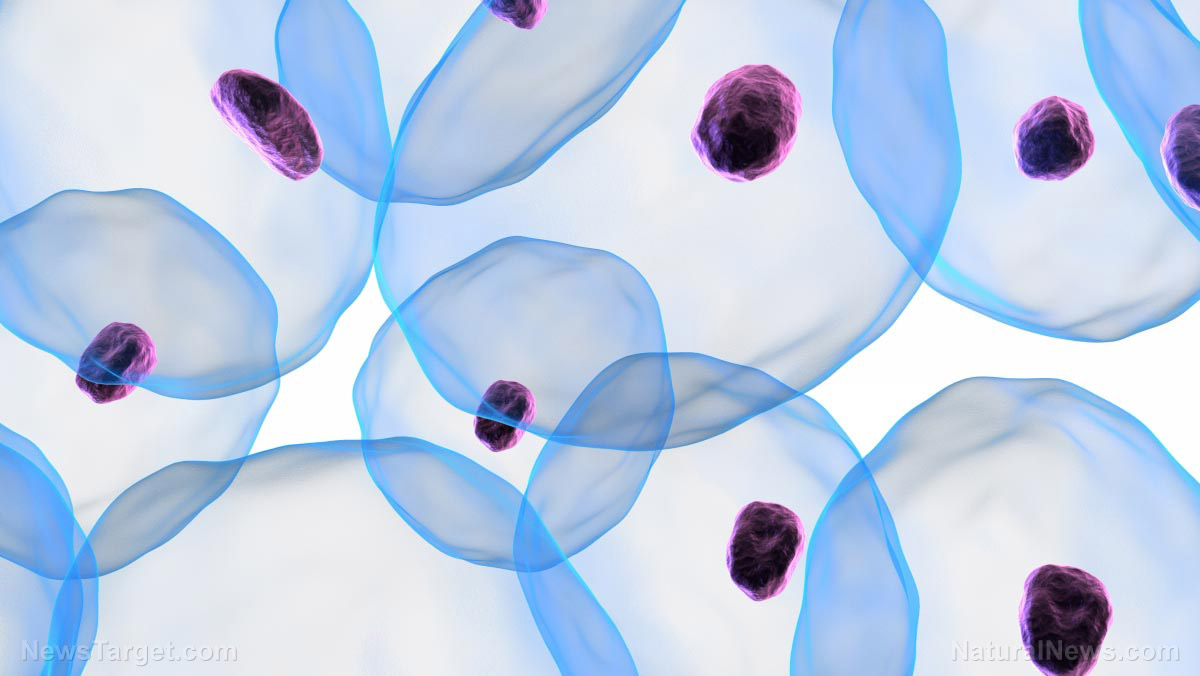
( Natural News ) Over 1,000 scientists have now joined the growing movement to challenge prevailing evolutionary theory. Under present scientific dictatorship, theories like Darwinism go virtually undisputed; challenging such a widely accepted belief is almost certainly career suicide. But as the “dissent from Darwin” movement shows, even the most “established” of theories should still be subject to scrutiny. To continue to blindly accept a theory, even with evidence to the contrary, is more akin to brain-washing. The true spirit of science, after all, is to question — not to follow. The aptly-named list, “A Scientific Dissent from Darwinism,” surpassed 1,000 names in early 2019. Respected professionals from around the country who’ve earned doctorate degrees from top-tier universities are joining forces to remind the establishment, and the public, that what scientists know, and what they think they know are two different things. Dissenting from Darwinism The Dissent from Darwin list was created in 2001 and is maintained by the Discovery Institute. All 1,043 dissenters have signed the same 32-word statement, which reads: “We are skeptical of claims for the ability of random mutation and natural selection to account for the complexity of life. Careful examination of the evidence for Darwinian theory should be encouraged.” This is what radicalism looks like in 2019, and in case you can’t tell — it’s also what “common sense” used to look like. The very idea that questioning Darwinism could be so controversial is laughable; if no one ever questioned “prevailing theory,” we’d all still believe the Earth was flat. There would be no Darwinism either, for that matter. And yet, here we are: Living in a world where asking too many questions is considered dangerous. Get CLEAN FOOD and help support our mission to keep you informed : The Health Ranger Store lab […]
Cholesterol-lowering drugs have serious side effects that include brain damage
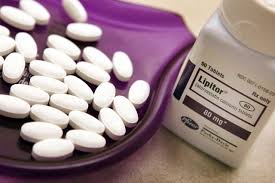
( Natural News ) One out of every five Americans has been convinced to take a statin drug in order to lower their blood cholesterol levels and supposedly prevent heart disease. The Centers for Disease Control (CDC) admit that statin drug use is on the rise; Atorvastatin (Lipitor) is the best-selling prescription drug in the world. The problem with statin drugs is they cause memory loss , learning difficulties, muscle wasting, rapid aging, irritability, and mental health issues. Peer reviewed research also indicates that almost half of all women who religiously take statins ultimately develop diabetes . These are topics that doctors don’t necessarily discuss with patients in full detail. These are problems that the pharmaceutical industry is not being held accountable for. Statin drugs are contributing to the rise in memory problems, dementia, and Alzheimer’s. Statin drugs are inhibiting the body’s ability to regulate blood sugar levels. Statins destroy the mitochondria of cells, causing rapid aging and brain damage While statins are presented as a daily cure-all, a study published in JAMA Internal Medicine shows otherwise. Researchers followed eleven million patients from 1987 to 2013. Those who took statins and other cholesterol-lowering drugs were four times more likely to report memory loss after starting the drug. Even the FDA warned that statins can cause confusion and memory loss. According to scientists at Tulane University in New Orleans , statins “deactivate” the stem cells responsible for cellular repair throughout the body, causing rapid brain damage. 100% organic essential oil sets now available for your home and personal care, including Rosemary, Oregano, Eucalyptus, Tea Tree, Clary Sage and more, all 100% organic and laboratory tested for safety. A multitude of uses, from stress reduction to topical first aid. See the complete listing here , and help support this news site. […]
Your brain needs a fitness plan. Here’s how to keep it in shape
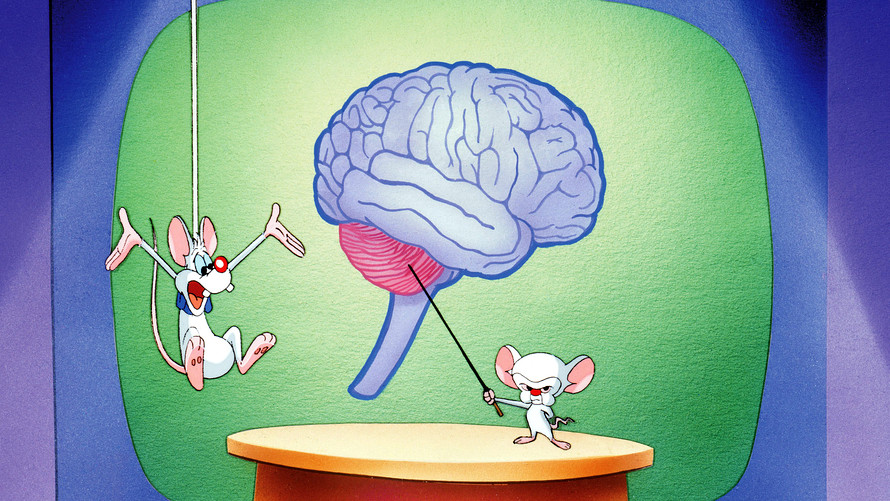
You’re likely to hear a lot more in the coming years about brain health and what you can do for your own. The basics of heart health have been drilled into our brains: Eat less saturated fat. Keep moving. Know your “numbers” for cholesterol, blood pressure and BMI. But what about that brain itself? Although life expectancy has more than doubled since 1900, our “mindspan” — how long we stay cognitively healthy — hasn’t kept pace. Forgetfulness, slower processing and feeling less sharp plague most of us as we age. One in five people develops mild cognitive impairment, a decline in thinking skills beyond normal aging, which may or may not advance to dementia. After 65, your odds of developing Alzheimer’s disease are one in 10. It doesn’t have to be that way, mounting research suggests. “The very term ‘age-related memory loss’ may be a misnomer,” says neurologist Dr. Richard Isaacson, an Alzheimer’s specialist at Weill Cornell Medicine in New York. Time and genetics alone don’t erode brain functions. How we spend our lives managing the modifiable risk factors that affect our genes is highly significant for our brain health, researchers say. That’s why you’re likely to hear a lot more in the coming years about brain health and what you can do for your own. Educating the public on this is, in fact, one of the four core purposes of the Centers for Disease Control’s Healthy Brain Initiative, which recently kicked off its 2018-2023 road map for public health agencies , says program leader Lisa McGuire. Brain health: stop thinking there’s nothing you can do “Awareness of the steps to improve cognitive brain function is at least a generation behind that of heart health,” says cognitive neuroscientist Sandra Bond Chapman, director of the Center for Brain Health at […]
5 Powerful Herbs For Overcoming Brain Fog + Mental Fatigue
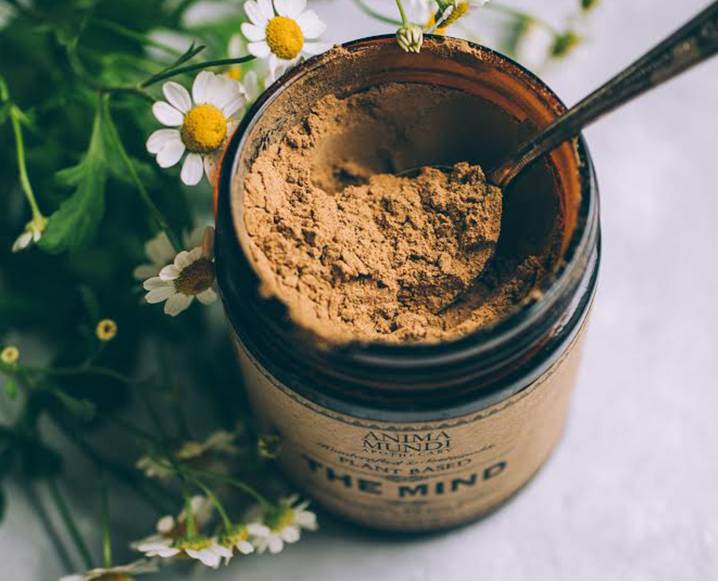
A fuzzy brain is no fun when you have worlds to conquer and magic to make (or maybe babies to feed and deadlines to make). While a shot of espresso might get things buzzing, a powerful way to clear brain fog and boost cognitive power is with herbs. Our go-to herbalist and founder of modern apothecary Anima Mundi, Adriana Ayales, is sharing this plant wisdom for busting brain fog and rejuvenating brain health overall. The idea of using herbs to optimize our mental capacity, mood and overall ability to function on a high level is everything we’re about right now… On Brain Fog + Modern Living Brain fog is the consequence of a “leaky” brain or a “mind on fire.” Meaning, brain fog is a sign of inflammation. Unlike most of the body, the brain does not produce pain when inflamed, instead, one of the most common symptoms is brain fog, which makes people feel spaced out, disconnected and depressed. Inflammation in the brain causes neurons to fire more slowly, slowing down mental capacity, recall and reflexes. Brain inflammation slows down the conduction between neurons and, as a result, it functions slow causing slowness and dullness of thinking. Also, it is vital to recognize that a fired up brain leads to a profound shift in our psyche — leading to biological impairment within our perception, awareness, emotional balance and state of mind. Having a sluggish neurological system shuts down our ability to produce cellular energy, as a result fatiguing easily and loosing the ability to focus for long periods of time. No wonder that in today’s world, the average attention span is supposedly ten seconds! A scary reality isn’t it? The over-digitalized world works against us in many ways. Although advancement in technologies have granted us access to a […]
Hang up and drive: Cell phone radiation may explain road rage — it lowers impulse control and disrupts the blood-brain barrier

( Natural News ) Aside from the possibility of being distracted and being prone to causing accidents on the road, people who drive while using their cellular phones are at greater risk of radio frequency phone signals that move along several wireless towers. “Those waves have to boost up from your cell phone to find the towers. If you’re in an elevator, same thing,” Dr. Mehmet Oz of The Dr. Oz Show fame, said. The principle behind this phenomenon follows: Cell phones give off the most radiation when they are trying to connect to cellular towers; if a phone is in transit, or situated in an area where there is weak signal, the phone has to try harder to get the signal it needs, therefore emitting more radiation. This kind of radiation has much the same effect to people as the radiation that food gets subjected to inside microwave ovens. “What microwave radiation does in most simplistic terms is similar to what happens to food in microwaves, essentially cooking the brain,” Dr. Keith Black, chairman of neurology at Cedars-Sinai Medical Center in Los Angeles, California, said. “So in addition to leading to leading to a development of cancer and tumors, there could be a whole host of other effects like cognitive memory function, since the memory temporal lobes are where we hold our cell phones,” Dr. Black added. (Related: Cell phone radiation – is your phone killing your sperm? ) Imagine, then, that your car has Wi-Fi. In that scenario, you are the figurative food, and your car is the figurative microwave oven. According to ElectricSense.com , these are the symptoms of getting exposed to too much radiation from the global positioning system (GPS) technology installed inside your car. The power of the elements : Discover Colloidal Silver Mouthwash […]
